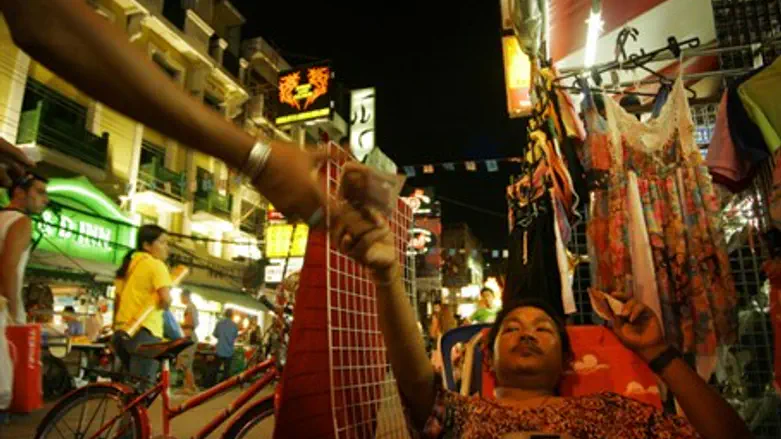
A 12-year-old Israeli boy has been discovered in a Bangkok monastery, wearing a saffron Buddhist robe. The boy, who speaks perfect Hebrew, was discovered by Israeli tourists when he approached them during their recent visit to the place.
The story came to light Tuesday in a broadcast of the boy’s conversation with the tourists on Israel’s Channel 2 television. The son of a divorced couple who live as Buddhists in southern Israel, he was diagnosed with blood cancer at age 3. Asked if he wanted to be taken home, he replied, “I told everyone already – it’s fine. I’m used to it.”
His parents sent him to the monastery in northern Thailand for care following a series of difficult treatments, including a bone-marrow transplant more than two years ago. When all treatments failed, according to his parents and the social worker involved in the case, monks advised the parents to send him to a Buddhist monastery in Thailand.
Since his arrival at the Bangkok monastery, the boy’s blood tests have improved, his mother told Channel 2. “There’s an enlightened man in the monastery, and he is keeping the boy alive,” she said. “It’s life energy. Do only doctors heal? Doctors don’t know how to heal. Doctors can only dismantle the harmful elements. That’s a different concept.”
His parents each visit him, alternating between mother and father. “My boy has been healthy for a year, my boy is learning, my boy is growing, my boy will be a wonderful man and he’ll be alive,” his mother said.
“Those who didn’t live in the Oncology Ward for four years, who didn’t see the children who don’t come out, the children twisted from treatment, all the suffering, have no right to judge me when my child is healthy and I’m not willing to take the risk that he’ll live in wonderful Israel and come back to the ward,” she said.
The hospital in which the boy received his treatments responded that the bone-marrow transplant had been successful, as had another life-saving treatment, without which the institution said the boy might not have recovered.
Medical officials at the hospital added, however, that follow-ups to those treatments had discontinued after one year, however, and that it is time they resume. The care he is receiving in Thailand cannot be considered a substitute, the hospital emphasized.
“When he’s 18 he’ll decide what he wants to do,” the boy’‘s mother responded when told that although “used to it,” her son would like to return home.
Israel’s Foreign Ministry has inquired into the case, and is discussing the matter with the Ministry of Social Services.